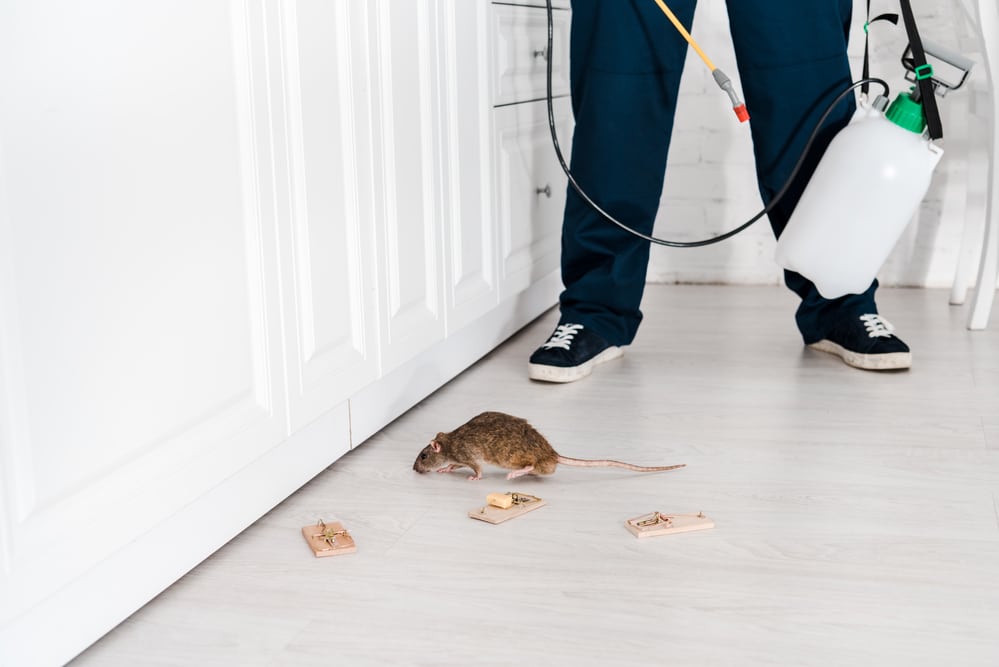Who is Responsible for Pest Control in a Rental Property?
Bed bugs, cockroaches, mice or rats, it’s never pleasant when a rental property is suffering a pest infestation. But the question of who is responsible for pest control in a rental property remains a grey area. It can be challenging to work out how an infestation came about, which is generally how to determine who is responsible for dealing with it. Here we look at the typical pest-related scenarios that can arise, and how to deal with them.
Bed bugs, cockroaches, mice or rats, it’s never pleasant when a rental property is suffering a pest infestation. But the question of who is responsible for pest control in a rental property remains a grey area. It can be challenging to work out how an infestation came about, which is generally how to determine who is responsible for dealing with it. Here we look at the typical pest-related scenarios that can arise, and how to deal with them.
Is a landlord responsible for pest control in a rental property?
Landlords are required, as far as is practically possible, to keep their properties free from pests. The Prevention of Damage by Pests Act 1949 still applies, and landlords could be served with a statutory notice to eradicate pests if an infestation at a rental property is causing a problem for tenants or neighbours.
There is a duty for landlords to provide healthy living conditions for tenants. In relation to pests, landlords are responsible for pest-proofing a property, and must arrange regular pest treatments if their property is situated within an area where there is a high population of pests.
Pests such as rats and mice can enter properties due to repair problems, for example where there are broken vents or air bricks, holes in external walls, damaged doors or windows, or cracks or gaps around the property. Failure to adequately maintain a property can lead to pest infestations, which would be down to the landlord to cover the costs of resolving.
UK councils can serve enforcement notices on landlords who refuse to deal with pest infestations. If the council ultimately has to arrange the extermination procedure, then they will have the legal power to charge the costs on to the landlord, together with the associated administration costs.
Landlords are also responsible for public health, which means that neighbours and other residents should not find themselves at risk due to a lack of care on the part of a landlord or their tenant.
If a property is infested before a tenant moves in, then it will fall to the landlord to deal with the issue. This is where a detailed property inventory and check-in report becomes important, as it will provide evidence of the condition of the property prior to the start of the tenancy, so protecting both landlord and tenant. It is still important to realise though that tenants still have an obligation to inform their landlord of any pest related issue as soon as they notice it.
When are tenants responsible for pest control?
There are various situations in which a tenant could be deemed responsible for investigating and resolving pest related issues. These include failing to notify a landlord in good time of any pest infestations; delaying pest treatments, and failing to successfully arrange the extermination of pests in the property. Any of these failures could lead to an infestation burgeoning, which could put other residents or neighbours at risk, and could even cause damage to the property.
Negligent behaviour that attracts vermin will also render the tenant responsible for dealing with the pest issue, if this behaviour is backed up by a health officer report. Examples would be failing to properly dispose of waste, or allowing a garden to overgrow.
Homes2let offers a property management service that reduces the landlord burden, with an added benefit…
As a landlord, you have enough to deal with without having deal with deposit claims. So why not hand over to a property management service, but one with a clear added benefit?
The homes2let guaranteed rent scheme guarantees rental payments, even when the property is untenanted, as well as taking all the hassle of property management off your shoulders too.
Interested to discover more? You are welcome to get in touch with our expert team to discover how we can make your life as a landlord more of a breeze.

Riz is the founder of homes2let and has been in real estate for over twenty years. He has a background in economics and is a real estate developer and buy to let investor.
Free, no obligation 15min call with Riz – Book Now
Related Insights

In What Circumstances can a Landlord Change the Locks?
When tenants fall into rent arrears or cause damage to a property, it can be tempting for landlords to change the locks to keep them out. However, taking such steps could prove to be a serious mistake, making it all the more difficult to gain the permissions necessary to legally evict a tenant and landing you in trouble with the law. Can a landlord change the locks? Let’s explore the subject in detail.

4 Mistakes First-Time Landlords Make and How to Avoid Them
Whilst it might sound straightforward enough to put your property on the rental market and start drawing income, there is actually quite a lot to master. Landlords often make mistakes when first starting out, some of which can lead to lost profits. Let’s take a look at some of the most common errors landlords make, and how to avoid them.

How has COVID-19 Changed Property Management?
Property services managers take care of a host of things, many of which have been impacted by the coronavirus pandemic. Let’s take a look at how COVID-19 has changed the various aspects of property management including safety checks and rent collection.







